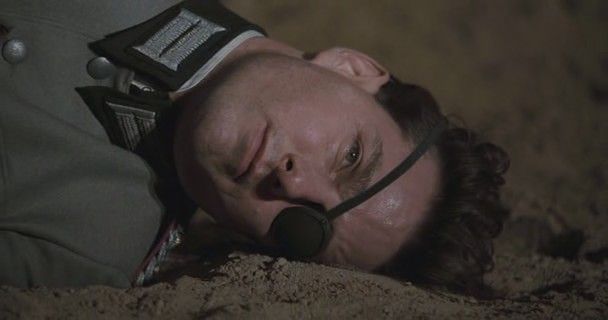 Why so serious?
Why so serious?Early last century, the Americans invented their own genre of cinema: the film noir. At the closing end of the century, another genre: the suburban angst movie. At the heart of both lies a love-hate affair with the city, but unlike the film noir, the suburban angst movie tends not to have any subtlety.
Part of the problem is that urban angst has far less creative room to manoeuvre: it's about how people are slowly driven to boredom, depression, and madness in their failed attempts to escape moral sterility, stifling conformity, and the puritan judgementalism of their neighbours.
In noir, one could at least make its characters in strange situations, make them do very interesting or outrageous things. All while being set in a bleak, fallen world. In urban angst, the furthest one could artistically go would be
Little Children.
And then, we have Revolutionary Road, the 1961 novel by Richard Yates that kicked off the entire suburban angst cottage industry. Its cinematic adaptation by Sam Mendes (
American Beauty) provides an unwitting lesson about the limitations of the genre, especially in an era where
Desperate Housewives is the title of a suburban comedy, not angsty tragedy.
Picture this: Leonardo DiCaprio and Kate Winslett star as an artistic and angsty (movie stereotype alert: it's all the same anyway!) couple who cannot take suburbia at all and are falling apart while making plans to quit and uproot themselves to Paris. Everything proceeds to fall apart because their plans meet a seeming wall.
I suppose one could sleepwalk through the movie and come out of the cinema convinced they've seen a most tragic film. But even the worst intentions of Yates and Mendes fail to deceive us here: this is a startlingly realistic movie about quitters, in the sense that Woody Allen's
Sleeper and Terry Gilliam's
Brazil are realistic movies about dictatorships and intellectuals in dictatorships.
Just like how the most efficient of dictatorships tend to historically produce the most navel-gazing, ineffectual and politically unaware 'intellectuals', suburbia tends to produce more angsty dilettantes with pretentious to artiness than truly angsty artists.
Hopefully, audiences not sleepwalking or in other states of somnolence will realise by middle of the movie that it is secretly a brilliant and daring comedy whose premise is how people who bitch and moan about how insufferable and soul-destroying suburbia and conventional life are really are insufferable and soul-destroying mediocrities themselves.
The clues are strewn all over the place - the histrionic, tripe-filled and overwrought declamations by the couple, the comedy of manners style naming of every character in the movie, and an otherwise annoying holy fool character whose sole purpose is to make too-accurate observations and analyses about the motive of every character. The screen time is filled with passive-aggressive dialogue where people batter and shame each other into submission, go on and on talking melodramatically about not talking to one another, or worse, about being honest with each other while communicating absolutely nothing. Comedy gold, this is.
As a tragedy, this movie is too full of theatrical tripe to work - you can blame the direction of Sam Mendes for this, and its success as an unintentionally campy flick. As a comedy, this movie is as black as they come. Still, one wonders what Ernst Lubitsch would have made about this American film genre. I suspect he might have laughed Revolutionary Road off, saying "Why so serious? Don't you know that suburbia and middle-class boredom isn't an American invention? Or even that devastating? Go on, it's okay to laugh at it!"
An earlier version of this review was published at incinemas on 16 April 2009
 Life is hard when you're a single mother living with an adult son with learning disabilities, making ends meet as the town's herbalist and illegal acupuncturist.
Life is hard when you're a single mother living with an adult son with learning disabilities, making ends meet as the town's herbalist and illegal acupuncturist.
































